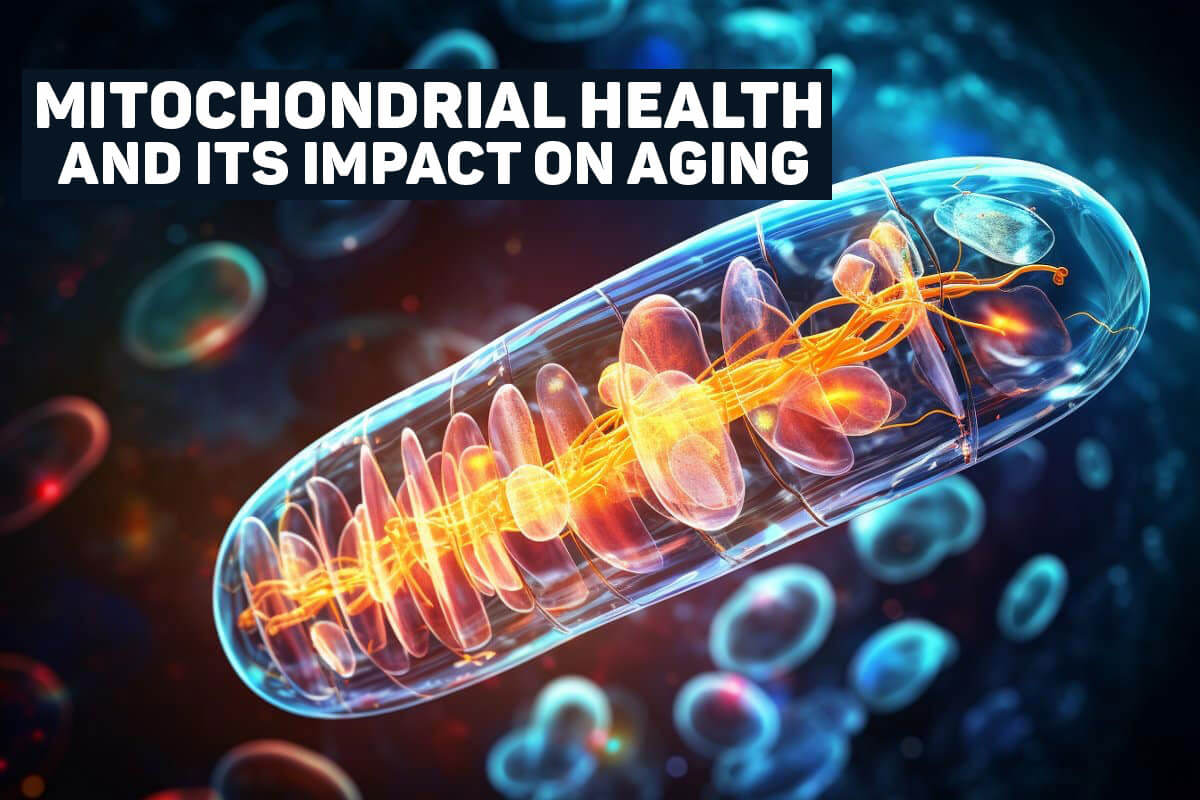Introduction
The organelles called mitochondria found in human cells as the energy generators dictate how fast we age. These are often called the ‘powerhouses of the cell’ and are responsible for generating energy through nutriment by the production of adenosine triphosphate (ATP) (Harrington, 2023). However, due to changes in the human body as a result of ageing, the function of the mitochondria reduces, causing ageing and the development of age-related diseases (Grevendonk, 2021). Thus, it becomes important for a man to take care of his mitochondria to address the issue of cellular ageing and generally enhance his health status as he grows older.
The Mitochondrial Theory and Aging
Deficiency in energy production in the mitochondria is also characterized as a process related to ageing. These organelles become damaged from oxidized stress, which is a side effect of the energy-producing process as the mitochondria function (Grevendonk, 2021). In mitochondria, ROS are produced to cause oxidative stress which may lead to damage of the mDNA, proteins as well as lipids (Hinderling, 2021). This damage affects the mitochondria and results in a reduction of ATP and an increase of ROS, making a cycle where cellular aging is promoted. In a published study in Cell Metabolism in 2019, it was identified that many diseases associated with ageing are linked to mitochondrial dysfunction such as Alzheimer’s, Parkinson’s, cardiovascular, and type 2 diabetes (Hinderling, 2021). Mitochondrial dysfunction makes the cell lose its capacity to repair and rejuvenate which has negative impacts on the vital aspect of the tissue that is the cell cycle stopping or becoming senescent.
How to Selectively Decelerate the Aging Process at the Mitochondria Level
Mitochondrial deterioration is a typical characteristic of ageing, but new trends indicate that its pace can be slowed down by habitual changes and therapies that enhance the effectiveness of mitochondria (Memme, 2021).
- Exercise
The best way that has been recommended to boost the health of mitochondria is through physical activity (Memme, 2021). In particular, aerobic exercise has been reported to increase the level of mitochondrial biogenesis, which is the process of creating new mitochondria inside differentiated cells. A work done by Dupont et al in The Journals of Gerontology in 2020 described that the people who engaged in the exercise had higher mitochondrial density in their muscles and hence had better endurance and metabolic health (Leduc-Gaudet, 2021). It also brings down oxidative stress which in turn aids in lessening the damage in mitochondria (Leduc-Gaudet, 2021).
- Caloric Restriction and IF
A significant amount of literature proves that caloric restriction (CR) and intermittent fasting (IF) enhance mitochondrial biogenesis with an indication of an ageing slowdown. A study done by Nature Communications in 2018 revealed that diet-induced fasting in various animal subjects enhanced the number and activity of mitochondria, and decreased the levels of oxidative damage and aging (Sreedhar, 2020). When you fast, autophagy occurs to recycle damaged mitochondria and keep cells with appropriate quantities of mitochondria (Sreedhar, 2020).

- Nutritional Interventions
Some nutrients and supplements which have been found useful in enhancing the health of mitochondria are; Coenzyme Q10 (CoQ10) is a compound that participates in the mitochondrial electron transport chain and is essential for ATP synthesis. In elderly people, CoQ10 supplementation has been found to enhance human mitochondria and decrease stress in ageing people. A clinical trial investigating the effect of CoQ10 intervention on the cognitive function of older adults was also supported by Aging Cell in 2019. Also, there is NAD+ which is a coenzyme that in its reduced form is essential for the function of the mitochondria and is known to decrease with age. Science Journal in 2018 reported how the raising of NAD+ levels in older mice enhanced the power of mitochondria and thus the life span of the rodents.
- Mitochondria-Targeted Therapies
Pharmaceutical research has identified several molecules with a focus on the mitochondria to try and halt the ageing process. Another potential strategy would be the employing of mitochondria-selective antioxidant compounds like MitoQ. These compounds are using clinical research to determine whether they can reverse age-related diseases, and increase life span.
| Category | Details | Impact on Mitochondrial Health |
|---|---|---|
| Mitochondrial Function & Aging | Mitochondria generate energy through ATP production. As aging progresses, their efficiency decreases, leading to oxidative stress and damage to mitochondrial DNA (mDNA), proteins, and lipids. | Decreases ATP production, increases ROS (reactive oxygen species), and accelerates cellular aging. |
| Exercise | Regular aerobic exercise boosts mitochondrial biogenesis (the formation of new mitochondria) and reduces oxidative stress. | Enhances mitochondrial density, improves endurance, reduces oxidative stress, and supports metabolic health. |
| Caloric Restriction (CR) & Intermittent Fasting (IF) | Both CR and IF promote autophagy, which recycles damaged mitochondria. Studies show they increase mitochondrial numbers and function while decreasing oxidative damage. | Enhances mitochondrial biogenesis, reduces oxidative damage, improves metabolic efficiency, and slows the aging process. |
| Nutritional Interventions | Supplements like CoQ10 (for ATP synthesis) and NAD+ (a coenzyme that decreases with age) are essential for mitochondrial health. | CoQ10 reduces stress in aging people, improves cognitive function, and increases ATP. NAD+ raises energy production and may extend lifespan. |
| Mitochondria-Targeted Therapies | MitoQ and other mitochondria-selective antioxidants are under research for their ability to reverse age-related mitochondrial damage and increase lifespan. | Targeted therapies aim to protect mitochondria from oxidative stress and reduce the progression of age-related diseases. |
| Age-Related Diseases Linked to Mitochondrial Dysfunction | Mitochondrial dysfunction contributes to Alzheimer’s, Parkinson’s, cardiovascular diseases, and type 2 diabetes. | Reduced capacity for cell repair and rejuvenation, leading to tissue damage, cellular senescence, and impaired overall organ function. |
Footnotes
Harrington, J.S., Ryter, S.W., Plataki, M., Price, D.R. and Choi, A.M., 2023. Mitochondria in health, disease, and aging. Physiological reviews, 103(4), pp.2349-2422.
Grevendonk, L., Connell, N.J., McCrum, C., Fealy, C.E., Bilet, L., Bruls, Y.M., Mevenkamp, J., Schrauwen-Hinderling, V.B., Jörgensen, J.A., Moonen-Kornips, E. and Schaart, G., 2021. Impact of aging and exercise on skeletal muscle mitochondrial capacity, energy metabolism, and physical function. Nature communications, 12(1), p.4773.
Memme, J.M., Erlich, A.T., Phukan, G. and Hood, D.A., 2021. Exercise and mitochondrial health. The Journal of physiology, 599(3), pp.803-817.
Leduc-Gaudet, J.P., Hussain, S.N., Barreiro, E. and Gouspillou, G., 2021. Mitochondrial dynamics and mitophagy in skeletal muscle health and aging. International journal of molecular sciences, 22(15), p.8179.
Sreedhar, A., Aguilera-Aguirre, L. and Singh, K.K., 2020. Mitochondria in skin health, aging, and disease. Cell death & disease, 11(6), p.444.


